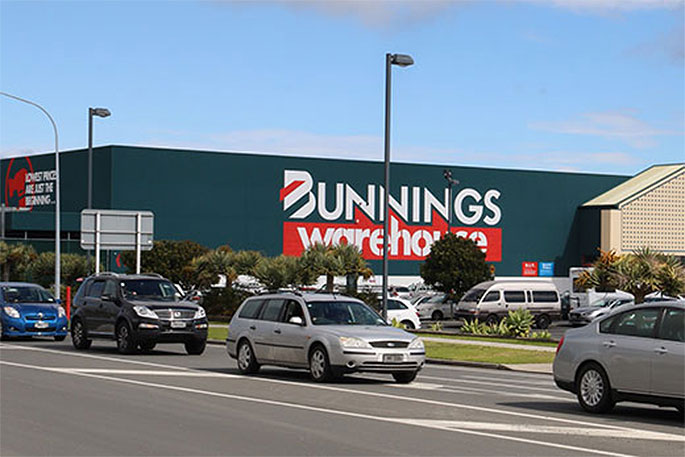Being worked to the point of having a heart attack is one issue being raised as thousands of retail workers across New Zealand head into bargaining periods with major employers.
In 2021, more than 2000 retail workers who are members of FIRST Union will enter bargaining to negotiate better wages and conditions with employers as their existing Collective Agreements expire.
Prior to the most recent Covid-19 lockdown, FIRST Union conducted national Stop Work meetings, where union members met during the working day to discuss common issues and opportunities across brands.
FIRST Union gathered five anonymous quotes from retail workers at Stop Work meetings held across the Bay of Plenty and Waikato.
"You don't ‘break', you just go into work and have a heart attack on a Monday morning,” says one Bunnings worker. Another states: "There's an ‘unwritten code'… we have to not follow the rules to get the job done. It isn't safe."
One Bunnings worker complained about security and safety:
"It's cheaper to leave people stealing rather than have adequate staffing levels, and it puts us in danger."
Responding to the anonymous statements, Bunnings have made it clear the safety of their staff is of paramount importance.
'The safety and wellbeing of our team is our number one priority and we have a strong safety culture in our stores which includes ensuring team take regular breaks and we have the right number of team rostered,” says Jacqui Coombes, director Bunnings New Zealand.
'Our team are encouraged to raise any concerns they might have through a variety of channels, including directly with their leader, confidentially through our HR team or via our Speak Up service which is managed by a third party and allows team members to make an anonymous report if they wish.
'All reports are looked into quickly and any safety concerns are investigated as a priority.”
FIRST Union aims to make three issues - healthy staffing, secure hours and living wages - a central part of all upcoming negotiations.
Key employers involved in negotiations include Bunnings, Farmers, Briscoes, Kmart, Cotton On and H&M.
"The first and most foundational issue facing retail workers is understaffing, which is a practice that has somehow been seen as ‘good business' until the pandemic came along," says Tali Williams, FIRST Union secretary for retail, finance and commerce.
"The American model of cavernous megastores with towers of products but no one to help you buy them has slowly, but surely, been exported to New Zealand over the last two decades despite the fact that Kiwis haven't ever enjoyed shopping in that way.
"But the pandemic has highlighted how important safe staffing levels are when retail workers are unable to take sick leave and end up putting themselves and customers at risk because they can't afford to stay home."
It is not just Bunnings who are mentioned in the First Union anonymous comments.
One worker at Farmers says some customers 'get abusive” when staff walk past empty counters in departments they do not specialise in, whilst an employee with Cotton On is critical of wages.
"Even as a manager, you will struggle to get a living wage out of them.”
Australian owned Bunnings is the first major retail employer to begin bargaining with FIRST Union.
Negotiations over a national Collective Agreement continued last week, but FIRST Union suggest Bunnings have not yet offered a living wage or been willing to address staffing levels or insecure hours during bargaining.
Bunnings were widely congratulated as one of the first major employers to sign a living wage deal with FIRST Union, but Tali suggests that the chain is currently choosing not to continue with this decision.
On the subject of the living wage Tali says this is such an obvious and easy way to hire and retain high-quality staff that most retail employers are already aware of the advantages of paying a base living wage and are already moving that way.
It is understood the majority of Bunnings' permanent team are on pay bands that already exceed the current Living Wage.
The package Bunnings is proposing would provide an entry pay band from September 2021 that's equivalent with the current Living Wage.
It is also understood that more than 80 per cent of Bunnings' team are covered by IEAs. The balance are covered by the CEA with First Union.
'We recently met with First Union and team member delegates to continue our Collective Employment Agreement negotiations for the portion of our team who are covered by a CEA,” says Jacqui.
'Throughout this process our primary objective has been to provide conditions that attract, reward and retain the best team.
'In our negotiations with First Union we have proposed a pay increase backdated to September 2020 as part of a new Collective Employment Agreement. On top of this, we also provide our team additional benefits including share options and bonuses outside of our IEA and CEA agreements.
'We believe the offer we have put forward is strong and balanced and we remain committed to reaching an agreement.”
Bunnings are already in negotiations with FIRST Union, as are Briscoes and H&M.
Farmers and Cotton On begin negotiations this week.



0 comments
Leave a Comment
You must be logged in to make a comment.